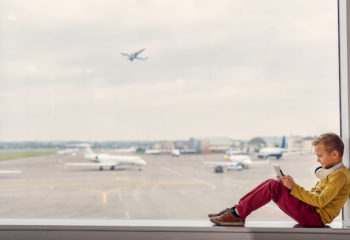How are you feeling after the time change on November 7? Are you still feeling tired? People are still feeling the effects of the transition and having trouble adjusting to the time change.
It may be just an hour difference, but the change can have a significant impact. Getting into a regular routine may take up to a week. This post will find some simple tips to help you and your kids adjust to the time change faster.

According to a survey of 1,700 U.S. high schoolers earlier this year conducted by Brainly, 65% of students in the USA reported constantly feeling tired or low energy.
Patrick Quinn, a parenting expert at Brainly, says: “The time switch may be an automatic switch for our iPhone. However, our body is not programmed like a man-made clock. That’s why it’s important to take the necessary steps to ensure our internal clocks adjust adequately. This is even more important for kids and teenagers because their bodies and minds are growing, and because their sleep directly impacts their academic performance.”
Below are five tips to help you adjust your body and sleep schedules if you’re still feeling the effects of last weekend’s time change:
- Adjust your daily routine as needed. Check your daily habits and familiarize yourself with sunrise and sunset hours. For example, if your child typically reads and then goes outside to practice soccer, they may want to consider saving the reading for after soccer, so it’s not dark when they’re playing. Then, plan how your routine will change to accommodate different activities after the time change.
- Get daily exposure to natural light. Make sure you go outside and get some exposure to morning sunlight after the time change to help regulate your internal clock. Having shorter daylight hours affects our mood and energy levels, decreasing serotonin, harming concentration and academic performance. So making time to take a morning or early afternoon walk outside when the sun is out can make all the difference in the world.
- Keep your meal time consistent. Our sleep cycle and our eating patterns are connected, so on the days around the time change, try to eat at the same time or even a little early.
- Practice healthy habits before bed. Try to put all your screens away an hour before bedtime. Electronics’ high-intensity light hinders melatonin, a hormone that triggers sleepiness. The light stimulates your brain and makes sleep difficult the same way sunlight does. Turn off the television and pick up a book instead. You can create a bedtime routine to help you relax and prepare for bed, take a warm shower, dim the lights, and get ready for deep sleep.
- Go to bed and get up at the same time. Before and after the time change transition, try to get a minimum of seven hours of sleep, and keep bedtime consistent even if you feel more tired and want to go to bed earlier. If you stick to your routine, you will help your body transition to the change faster.
How is the time change affecting you? Do you have any other tips to help you adjust to the change?









22 Comments on “Tips to Help You and Your Kids Adjust to the Time Change”
This one hour really used to affect my kids who were not got nappers. Someone suggested a 15 minute change for 4 days and that helped us a bit. It was gradual and gentle but thry still were affected every time. Consistency really is key.
I feel like I have adjusted well to the time change. For me the spring ahead time change is more of a challenge.
Great ideas, my son is still little and we do the time adjustments slow, 20 min each day. I love getting outside idea – i find this the most helpful – thanks for the tips
Good tips! The Fall time change doesn’t affect me as badly as the Spring one…
This is great advice.
Feeling tired because the kids still wake up an hour early, they are so noisy!
I struggle myself with the time change, the first week is always the worst
We kept to our same bedtime during fall back. It seems to have helped.
Great tips!
It’s the first time in many years I can say I didn’t adjust. Great tips.
I find it hard to come home after work in darkness! I have been walking in my lunch break to get extra daylight.
Thankfully my kids have finally adjusted to the time change. the first few days were horrible and they were waking an hour earlier but they gotta back into the swing of things
We made it this year, but my kids did need some extra outside time.
I absolutely dislike the time change as it just makes the days feel shorter. I don’t like the 4-5pm darkness already. I appreciate the tips.. daylight and eating habits are things I really need to work on especially with the kiddos !
Time changes really get to me, for a few weeks each time. I suffer from chronic migraines and as the changes also happen when the weather shifts the most, they act as added triggers. It doesn’t help that now in the fall I start work before the sun rises and finish as it sets. If I want to see the sun I need to enjoy it if I can on the weekend, or if I am able to not work through lunch. I wish this practice would just stop. Time, ironically, is the only thing that helps me adjust.
These are great tips! There’s been talk about getting rid of Daylight Savings time in BC….but still nothing concrete, I think…
Great tips. Thank you.
Good tips. Will be sure to use them as time change is just around the corner again.
Thanks for the tips. It always affects us twice a year.
Time change is tough for all of us! Thanks for the tips!!
Here we are again. My house is still sleeping and I’ve been up since 430 am lol. It was super hard when they were little but gotten easier over the years.
So useful, thanks for sharing!